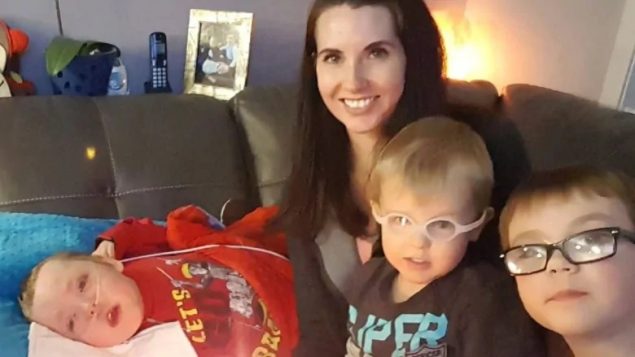Three boys and a full-time job as a nurse would likely be tough enough to cope with in the best of times, but Melissa Huitema is getting a taste of something even worse–one of those dark sides of humankind that might be better left in a locked closet somewhere a million miles away.
Huitema, her husband and their three sons live on a suburban street of single-family homes in Calgary.
Garages are in the laneway and no one has driveways.
That means street parking and a lot of hostility being directed at Huitema because the space in front of her house is filled with the cars of the professional help the family needs because the family’s middle son, five-year-old Cade, has a terminal illness and requires round-the-clock care.
“I’ve had people come to my door and tell me that I needed to move the vehicle or they were going to hit it, ” Huitema told Canadian Press in an interview.

Calgary placed fourth earlier this week in The Economist Intelligence Unit’s latest rankings of the world’s most livable cities. (Carla Beynon/CBC)
“I’ve had people leave notes on the vehicle asking not to park there. I’ve had people saying ‘Can you not park in front of my house?’ when I’m walking out with my kids.”
Huitema, who did not name the neighbourhood in the CP interview, says many of those complaining know of Cade’s condition.
Krabbe disease, which affects the nervous system, and is typically fatal by the age of two.
“Cade is completely aware of what’s going on around him, but his body is failing him,” Huitema told CP.
Some of the cars in front belong with developmental specialists, who are helping Cade learn.
“They’ve taught him how to communicate. He looks to his right for yes, his left for no,” says Huitema.
“He makes decisions on his own. He picks his books. The nurses even let him pick out what he wants to wear for the day.”
Huitema says she gets infuriated at times, but most of all she would like people in general to have more empathy.
“We need to be more aware of what people are going through,” she says.
“You need to step back and think about your actions.”
With files from CP







For reasons beyond our control, and for an undetermined period of time, our comment section is now closed. However, our social networks remain open to your contributions.